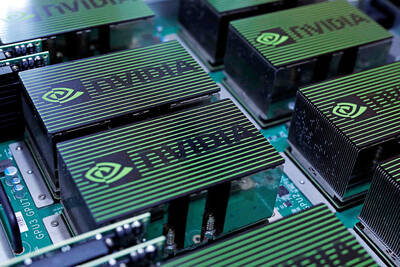Japan’s government on Friday said it would start subsidizing some companies to invest in factories in Japan and Southeast Asia as part of efforts to reduce reliance on manufacturing in China.
Fifty-seven companies including privately held mask-maker Iris Ohyama Inc and Sharp Corp would receive a combined ¥57.4 billion (US$536 million) in subsidies from the government to invest in production in Japan, the Japanese Ministry of Economy, Trade and Industry said.
Another 30 firms would receive money for investments in Vietnam, Myanmar, Thailand and other Southeast Asian nations, according to a separate announcement, which did not provide details on the amount of money.
While the ministry’s statement did not explicitly state that the money is to move production out of China, Japanese Prime Minister Shinzo Abe in March said that Japan needed to bring production back home or diversify output to ASEAN and elsewhere to cut reliance on any one country such as China.
The government would pay a total of ¥70 billion in this round, the Nikkei newspaper reported.
The payments come from ¥243.5 billion that the government in April earmarked to reduce reliance on Chinese supply chains, with the money aimed at helping companies shift factories back home or to other nations.
Amid a US-China trade dispute, there have been increasing discussions in the US and elsewhere about how to “decouple” economies and firms from China. Japan’s decision is similar to a Taiwanese policy last year, which was aimed at bringing investment back home from China.
So far, no other country has enacted a concrete policy to encourage the shift.
China is Japan’s biggest trading partner under normal circumstances and Japanese companies have massive investments there. The COVID-19 pandemic has damaged those economic ties as well as China’s image in Japan.
Japanese exports fell by more than 20 percent for a third straight month even as key markets started to reopen from virus shutdowns.
The value of Japan’s overall shipments overseas slid 26.2 percent last month from a year earlier, led by steep declines in exports of vehicles and auto parts, the Japanese Ministry of Finance reported yesterday.
Economists forecast a 24.7 percent fall.
Although exports continued to be down sharply compared with the previous year, there were signs that declines might have bottomed.
Vehicle exports halved last month compared with falls of about two-thirds in May. Overall drops in exports to the US and the EU were 4 to 5 percentage points less than in the prior month, data showed.
Improving shipments to China have helped prevent Japan’s export declines from being even worse. Shipments to the world’s second-largest economy dropped just 0.2 percent last month, compared with a year earlier, data showed.

Leading Taiwanese bicycle brands Giant Manufacturing Co (巨大機械) and Merida Industry Co (美利達工業) on Sunday said that they have adopted measures to mitigate the impact of the tariff policies of US President Donald Trump’s administration. The US announced at the beginning of this month that it would impose a 20 percent tariff on imported goods made in Taiwan, effective on Thursday last week. The tariff would be added to other pre-existing most-favored-nation duties and industry-specific trade remedy levy, which would bring the overall tariff on Taiwan-made bicycles to between 25.5 percent and 31 percent. However, Giant did not seem too perturbed by the

AI SERVER DEMAND: ‘Overall industry demand continues to outpace supply and we are expanding capacity to meet it,’ the company’s chief executive officer said Hon Hai Precision Industry Co (鴻海精密) yesterday reported that net profit last quarter rose 27 percent from the same quarter last year on the back of demand for cloud services and high-performance computing products. Net profit surged to NT$44.36 billion (US$1.48 billion) from NT$35.04 billion a year earlier. On a quarterly basis, net profit grew 5 percent from NT$42.1 billion. Earnings per share expanded to NT$3.19 from NT$2.53 a year earlier and NT$3.03 in the first quarter. However, a sharp appreciation of the New Taiwan dollar since early May has weighed on the company’s performance, Hon Hai chief financial officer David Huang (黃德才)

NVIDIA FACTOR: Shipments of AI servers powered by GB300 chips would undergo pilot runs this quarter, with small shipments possibly starting next quarter, it said Quanta Computer Inc (廣達), which supplies artificial intelligence (AI) servers powered by Nvidia Corp chips, yesterday said that AI servers are on track to account for 70 percent of its total server revenue this year, thanks to improved yield rates and a better learning curve for Nvidia’s GB300 chip-based servers. AI servers accounted for more than 60 percent of its total server revenue in the first half of this year, Quanta chief financial officer Elton Yang (楊俊烈) told an online conference. The company’s latest production learning curve of the AI servers powered by Nvidia’s GB200 chips has improved after overcoming key component

UNPRECEDENTED DEAL: The arrangement which also includes AMD risks invalidating the national security rationale for US export controls, an expert said Nvidia Corp and Advanced Micro Devices Inc (AMD) have agreed to pay 15 percent of their revenue from Chinese artificial intelligence (AI) chip sales to the US government in a deal to secure export licenses, an unusual arrangement that might unnerve both US companies and Beijing. Nvidia plans to share 15 percent of the revenue from sales of its H20 AI accelerator in China, a person familiar with the matter said. AMD is to deliver the same share from MI308 revenue, the person added, asking for anonymity to discuss internal deliberations. The arrangement reflects US President Donald Trump’s consistent effort to engineer